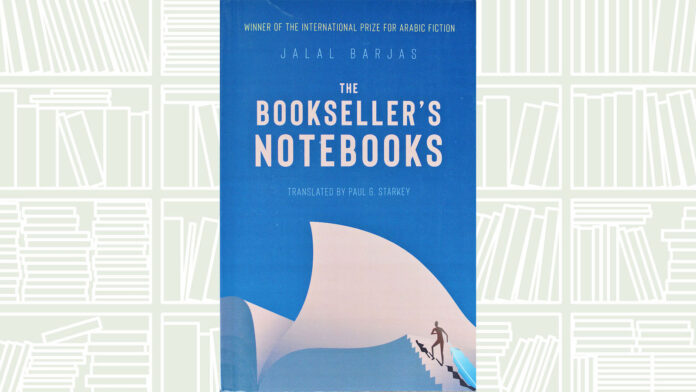CHICAGO: The winner of the International Prize for Arabic Fiction 2021 and newly translated into English in December, Jordanian author and poet Jalal Barjas’s “The Bookseller’s Notebooks” tells the tale of a man named Ibrahim whose life follows the meandering path of his own conjured delusions. Translated from Arabic into English by Paul G. Starkey, Ibrahim moves across Amman, Jordan, with an overwhelming sense of abandonment and disappointment — he also suffers from schizophrenia. As he looks at the world through the lens of multiple personalities and characters in books he has read, he goes on a crime spree throughout the city.
Bookseller Ibrahim is a man who has lost his family, his job, and his purpose in life. He had only his father’s book kiosk left, but that too is demolished when King Hussein Street is expanded. Drowning in all-consuming loneliness, the voices inside Ibrahim’s head become louder and more urgent. He is pushed into decisions that drive him to the brink of his sanity and morality. Facing homelessness, mental illness, and the tragic stories of people around him, Ibrahim morphs himself into the heroes and criminals that he has read about in his books.
The descent into madness is slow and Ibrahim attempts to stop it at every turn, but with tragedy piling upon tragedy, and the woeful characters he meets, Ibrahim taps into his ability to change his entire personality to match characters in his books. With the voices inside him telling him to protect justice and fight for the greater good, Ibrahim commits crimes disguised as Quasimodo from “The Hunchback of Notre Dame” and Said Mahran from “The Thief and the Dogs,” among others.
Barjas’s evocative tale uses generational trauma, society’s marginalized individuals, and injustice in a tacit acknowledgement of a global social system that leaves too many behind. Through Ibrahim, Barjas highlights the half-lives of people who want to live full lives but cannot because of circumstances beyond their control. While Ibrahim lives in his past and hides in his books and past trauma, he reconciles overwhelming loss by moving forward and coping in whatever way he can.

